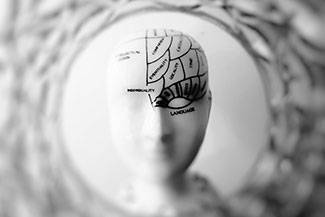
Acquired Brain Injuries
Acquired brain injury (ABI) is an injury to the brain that is not hereditary, congenital, degenerative, or induced by birth trauma. The brain’s neuronal activity changes as a result of the injury, affecting the physical integrity, metabolic activity and functional ability of nerve cells in the brain.
What Causes Acquired Brain Injury (ABI)?
There are many ways a person can experience an ABI, including:
- Alcohol or drugs – excessive consumption can cause brain damage
- Diseases – such as brain cancer, Alzheimer’s disease, multiple sclerosis and Parkinson’s disease
- Lack of oxygen – called anoxic brain injury, usually caused by near-drowning, choking or suffocation
- Physical injury – such as an impact or blow to the head, which may occur during a fall, in a sporting or vehicle accident, or from an assault
- Stroke – such as an embolism or other blockage of the blood vessels or a transient ischemic attack (TIA)
How ABI affects a Person’s Vision
ABI’s can significantly impact the functioning of the visual system. While certain brain injuries may cause permanent damage to the optic nerve, it’s more common for it to disrupt the pathways that enable communication between the eyes and brain.
Visual problems may include:
- Dizziness
- Double vision
- Focusing problems
- Headaches
- Problems with walking and stride
Treatment for Vision Affected by ABI
Neuro-optometrists offer a customized treatment regimen for people with visual deficits resulting from acquired brain injuries.
First of all, your neuro-optometrist will assess your vision and visual skills during a comprehensive neuro-optometric exam. Based on those findings, your doctor will design a neuro-optometric rehabilitation program to address your specific needs. The focus of the treatment will be managing low vision and vision rehabilitation to improve functioning, including any learning disorders.
The goal of neuro-optometric rehab is to minimize visual disability so that a patient can carry out daily activities like walking, reading and driving.
Neuro-optometric rehab utilizes special prescription lenses, prism lenses or patching, depending on the visual problem that needs treatment.
With the right treatment paired with a customized neuro-optometric rehabilitation program, many patients find that their symptoms improve almost immediately, leading the way toward long-term healing. For more information about neuro-optometry please contact Neuro-Optometry Center at Clarity Optometry or to schedule a neuro-optometric vision evaluation.
Our practice serves patients from Hamilton, Ancaster, The Greater Hamiton Area, and , Ontario and surrounding communities.













